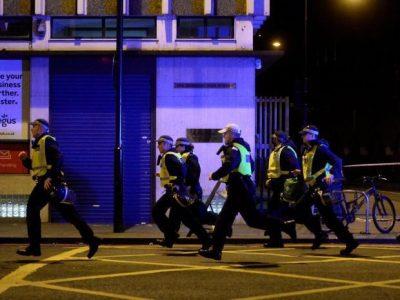
Isis urged undercover BBC reporter to launch terror attacks in London Bridge and Westminster
Isis recruiters urged an undercover BBC reporter to launch a terror attack on London Bridge almost a year before June’s atrocity, it has been revealed.
The journalist was part of a team who spent two years posing as fictional characters online to interact with terrorist trainers on social media and encrypted messaging services.
The undercover reporter, from the BBC’s Inside Out London programme, posed as a 17-year-old boy who was living with his parents.
In conversations dating back to 2015, he used Twitter to make contact with Junaid Hussain, a jihadi from Birmingham who travelled to Syria in 2013.
Hussain was killed in a drone strike in August 2015 because of his role as a recruiter and terror instructor linked to a shooting in Texas earlier that year, as well as heading Isis’s hacking unit.
After his death, another recruiter made contact with Inside Out‘s undercover reporter to continue the conversation and detailed a plot to assassinate a police officer, including how to obtain firearms and bullets.
“In July 2016, we discovered that the terrorist organisation was touting on Twitter and Facebook for British Muslims to stage attacks at specific London locations,” he said.
“We began conversing with one of their recruiters, who then invited us to chat privately on a secret messaging site. The authorities were fully aware of our contact with the terrorist organisation.”
In a conversation in July 2016, the reporter claimed his family were Muslim but that he “fell off the wagon” before getting “back on track” – mirroring several British terrorists who were radicalised after being involved in crime, drugs and gangs.
Three days later, the suspected Isis recruiter started asking questions about the boy’s knowledge of London and crowded places, suggesting Westminster as a potential target.
“If you succeed, it will be huge and damaging for them,” said the Isis agent, who was reportedly known as “Manager” on encrypted messaging services.
Eight months later, Muslim convert and former convict Khalid Masood rammed his car into pedestrians on Westminster Bridge before stabbing a police officer dead outside the Houses of Parliament.
His attack, the first claimed by Isis in the UK, killed five victims and Masood was shot dead at the scene.
The Independent revealed that a WhatsApp message sent by Masood from behind the wheel declared that he was waging jihad and investigations into his potential communication with Isis recruiters continue.
The atrocity was followed by a suicide bombing that killed 22 people at Manchester Arena on 22 May, and a van and knife rampage at London Bridge on 3 June.
The BBC reporter said the Isis agent named the bridge as a potential target in July last year, and gave the option “of either doing it alone or along with a team”.
Source: independent





